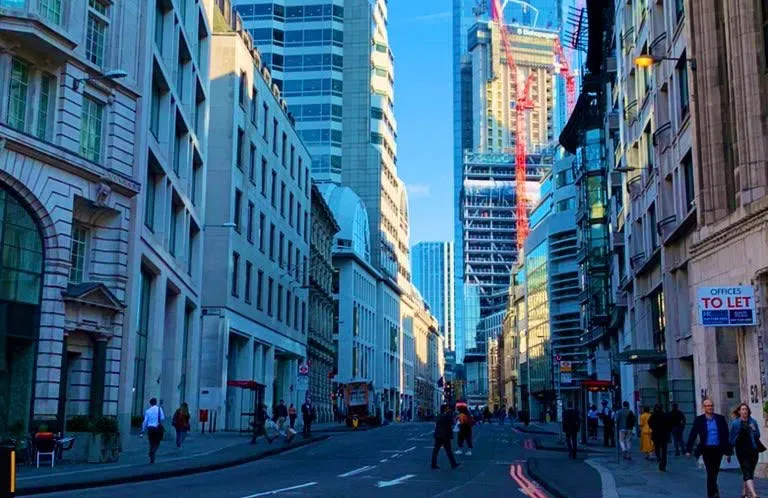Rising to the Challenge on Haiti: Multinational Security Support Mission Ministerial Meeting
HomeOffice of the SpokespersonPress Releases…Rising to the Challenge on Haiti: Multinational Security Support Mission Ministerial Meeting hide Rising to the Challenge on Haiti: Multinational Security Support Mission Ministerial Meeting Remarks February 22, 2024 SECRETARY BLINKEN: Assistant Secretary Nichols, thank you very, very much. (Inaudible) everyone here, thank you (inaudible) being here today (inaudible) for hosting with us. Over the past two days, you’ve had the G20 foreign ministers meeting, and many partners also coming together in support of a shared mission that our hosts have put forward: “to build a just world and build a sustainable planet.” To resolve conflict; to make communities more peaceful and more stable; to ensure the international system is responsive to the challenges of our time. That’s been the focus of the last two days of discussion, and I think it’s safe to say that one of the most urgent challenges we face as an international community is in Haiti. In January alone, more than 1,100 people were killed, injured, or kidnapped in the country. Gangs now control 80 percent of the capital, Port-au-Prince. Armed groups use sexual assault and rape to terrorize the population. The violence has also had the effect of blocking trade routes and aid routes, and shuttered schools. Criminal groups have cut off access to food, to clean water, to health care, to electricity. Half the country is eating just one meal a day. Three million children need immediate humanitarian aid. And the conflict is spreading north to Haiti’s breadbasket, threatening the food supply for the entire country. The United States is working to reduce the violence and improve daily life for Haitians. We’ve provided more than $300 million for food, for clean water, for health care, services for survivors of gender-based violence, and other humanitarian aid over the last three years. We’ve allocated $189 million going back to July of 2021 to help vet, train, and professionalize the Haitian National Police, including supplying vehicles, protective equipment, communications tools, and other essential supplies. We’re deploying sanctions and visa restrictions to hold accountable those individuals who are financing or enabling violence. And we’re already, as it stands, the largest single donor of assistance to Haiti; we’re committed as well to expanding our efforts. But we know that this support alone is not enough – not enough for the Haitians to take back their country. We need to do more to help the Haitian National Police stabilize the security situation now so that aid can flow in effectively and get to people who need it, so Haitians do not have to live in terror of gangs, and so that Haiti returns fully and strongly to a democratic path. Now, the best way we see to bring about this future is with the UN-authorized Multinational Security Support Mission. That is what the overwhelming majority of Haitians are calling for. In September, many of us came together in the United Nations General Assembly to discuss the urgent need for a UN Security Council resolution that would authorize such a mission. The following month, the Security Council passed UN Security Council Resolution 2599 with robust support. Since then, we’ve had planning conferences – we’ve included one in Washington just last week – we’ve had assessment visits, all to prepare for this mission. The success of the mission, though, depends on securing the international contributions that it needs. Improving Haiti’s security situation is in our collective interest. We all want to prevent destabilizing irregular migration. We all want to counter criminal violence and arms trafficking. We all want to help Haitian communities in need. The international community has led international efforts to support Haiti for decades. But we need to help Haiti see these efforts through. So let me start by again expressing deep appreciation to the Kenyan Government for its willingness to serve as the lead nation of this mission. And we welcome countries around the world – from the Caribbean to West Africa – that have pledged personnel. The United States intends to provide $200 million to the Multinational Security Support Mission. Our assistance will deliver operational support to help the Haitian National Police with planning, with intelligence, with airlift capacity, communications, and medical equipment and services. We urge the international community to join us by contributing funding, contributing personnel, contributing equipment, contributing logistics, contributing training to this mission. Now, long-term stability in Haiti will require not only restoring public security, but also improving political, economic, and social condition

Rising to the Challenge on Haiti: Multinational Security Support Mission Ministerial Meeting
SECRETARY BLINKEN: Assistant Secretary Nichols, thank you very, very much. (Inaudible) everyone here, thank you (inaudible) being here today (inaudible) for hosting with us.
Over the past two days, you’ve had the G20 foreign ministers meeting, and many partners also coming together in support of a shared mission that our hosts have put forward: “to build a just world and build a sustainable planet.” To resolve conflict; to make communities more peaceful and more stable; to ensure the international system is responsive to the challenges of our time.
That’s been the focus of the last two days of discussion, and I think it’s safe to say that one of the most urgent challenges we face as an international community is in Haiti.
In January alone, more than 1,100 people were killed, injured, or kidnapped in the country. Gangs now control 80 percent of the capital, Port-au-Prince. Armed groups use sexual assault and rape to terrorize the population.
The violence has also had the effect of blocking trade routes and aid routes, and shuttered schools. Criminal groups have cut off access to food, to clean water, to health care, to electricity. Half the country is eating just one meal a day. Three million children need immediate humanitarian aid. And the conflict is spreading north to Haiti’s breadbasket, threatening the food supply for the entire country.
The United States is working to reduce the violence and improve daily life for Haitians. We’ve provided more than $300 million for food, for clean water, for health care, services for survivors of gender-based violence, and other humanitarian aid over the last three years. We’ve allocated $189 million going back to July of 2021 to help vet, train, and professionalize the Haitian National Police, including supplying vehicles, protective equipment, communications tools, and other essential supplies. We’re deploying sanctions and visa restrictions to hold accountable those individuals who are financing or enabling violence.
And we’re already, as it stands, the largest single donor of assistance to Haiti; we’re committed as well to expanding our efforts.
But we know that this support alone is not enough – not enough for the Haitians to take back their country.
We need to do more to help the Haitian National Police stabilize the security situation now so that aid can flow in effectively and get to people who need it, so Haitians do not have to live in terror of gangs, and so that Haiti returns fully and strongly to a democratic path.
Now, the best way we see to bring about this future is with the UN-authorized Multinational Security Support Mission. That is what the overwhelming majority of Haitians are calling for.
In September, many of us came together in the United Nations General Assembly to discuss the urgent need for a UN Security Council resolution that would authorize such a mission. The following month, the Security Council passed UN Security Council Resolution 2599 with robust support. Since then, we’ve had planning conferences – we’ve included one in Washington just last week – we’ve had assessment visits, all to prepare for this mission.
The success of the mission, though, depends on securing the international contributions that it needs.
Improving Haiti’s security situation is in our collective interest. We all want to prevent destabilizing irregular migration. We all want to counter criminal violence and arms trafficking. We all want to help Haitian communities in need. The international community has led international efforts to support Haiti for decades. But we need to help Haiti see these efforts through.
So let me start by again expressing deep appreciation to the Kenyan Government for its willingness to serve as the lead nation of this mission. And we welcome countries around the world – from the Caribbean to West Africa – that have pledged personnel.
The United States intends to provide $200 million to the Multinational Security Support Mission. Our assistance will deliver operational support to help the Haitian National Police with planning, with intelligence, with airlift capacity, communications, and medical equipment and services.
We urge the international community to join us by contributing funding, contributing personnel, contributing equipment, contributing logistics, contributing training to this mission.
Now, long-term stability in Haiti will require not only restoring public security, but also improving political, economic, and social conditions. The United States continues to call for the restoration of the democratic order through an inclusive political process in Haiti. We urge Prime Minister Henry and all key stakeholders to come together around broader-based governance.
The only legitimate path to long-term peace and stability is through free and fair elections. Haitians have the right to be led by a government of their choice – one that serves their needs, that reflects their aspirations, and that is accountable to the people that it serves.
Earlier last month, gang members targeted Solino, a once-peaceful neighborhood in Port-au-Prince. Residents were trapped in their homes by heavy gunfire, even as gang members torched storefronts, schools, houses, cars. People who managed to flee called into a local radio station to plead for help. One of them said: If police don’t come, we are dying today.
After a multi-day siege, the police managed to stabilize the situation. But Solino still burns – and residents fear that the gangs will attack again and take control, placing the entire capital under their abusive and terrifying control.
In Solino and across the country, the Haitian National Police are fighting courageously to take back their communities. If we stand with them, if we stand with the people of Haiti, they can succeed, we can succeed. Today, we have an opportunity to make that possible. I’m grateful to everyone who’s participating, standing up in this moment of need, but also this moment of possibility. Thank you.



